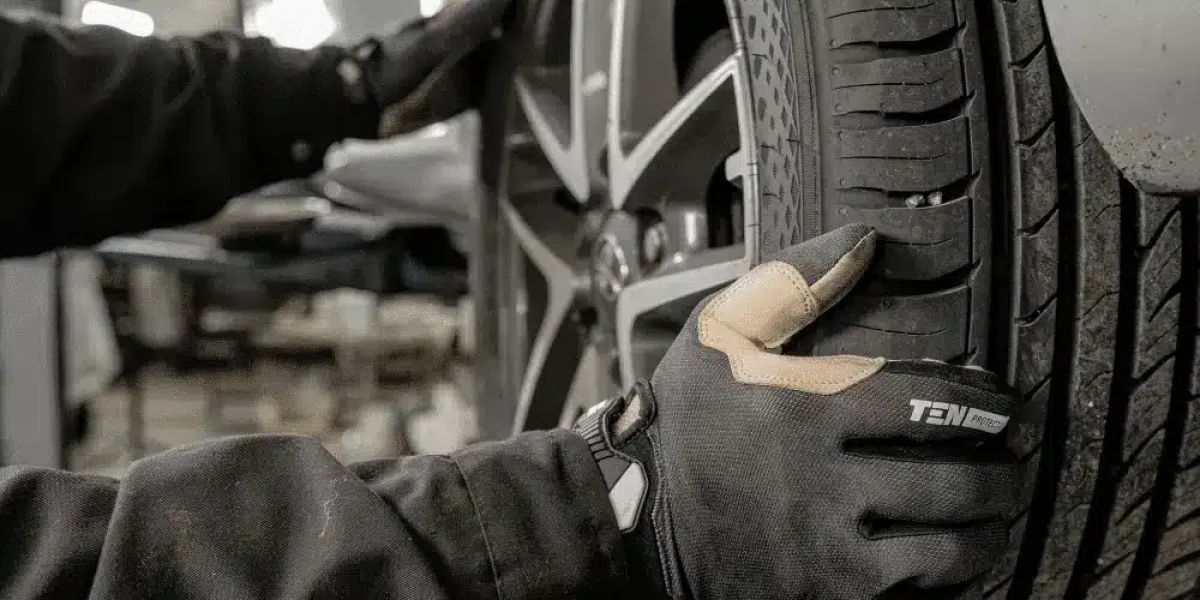Portland, Oregon, renowned for its eco-conscious community and commitment to sustainability, sets a high standard for responsible transportation practices. Among the myriad factors influencing vehicle efficiency, managing tire wear and fuel consumption stands out as crucial. In this article, we delve into effective strategies for Portlanders to optimize their driving habits, minimize environmental impact, and save on costs. https://www.avalonracing.net/during-the-race-tips-and-techniques-managing-tire-wear-and-fuel-consumption-during-a-race
Understanding Tire Wear
Tire wear is an inevitable consequence of driving, but its extent can be managed through proactive measures.
Regular Maintenance Checks
Scheduled inspections are paramount. Ensure tires are properly inflated, aligned, and balanced. Improper inflation leads to uneven wear, reducing tire lifespan and fuel efficiency. Portlanders should adhere to manufacturer recommendations for tire pressure and routinely check for signs of wear.
Rotation and Alignment
Rotating tires regularly promotes even wear across all wheels, extending their longevity. Additionally, proper wheel alignment prevents uneven wear, enhancing fuel efficiency and handling. Periodic alignment checks are advisable, particularly after hitting potholes or curbs, common occurrences on Portland’s roads.
Tire Selection
Investing in quality tires suited to Portland’s diverse weather conditions and road surfaces is prudent. All-season or winter tires with adequate tread depth ensure optimal grip and performance, especially during rainy seasons. While initial costs may be higher, durable tires offer long-term benefits in fuel efficiency and safety.
Eco-Friendly Driving Practices
Conscious driving habits not only reduce tire wear but also contribute to fuel efficiency and environmental sustainability.
Smooth Acceleration and Braking
Aggressive driving accelerates tire wear and burns excessive fuel. Gentle acceleration and braking minimize strain on tires and optimize fuel consumption. Anticipating traffic flow and maintaining a steady speed mitigate unnecessary wear and tear.
Reduce Idling Time
Oklahoma City‘s traffic congestion often results in prolonged idling, wasting fuel and accelerating tire degradation. Minimize idling by turning off the engine during extended stops. Utilize alternative transportation modes like cycling or public transit when feasible to reduce overall vehicle usage.
Optimal Route Planning
Efficient route selection can significantly impact fuel consumption and tire wear. Utilize navigation apps to identify the shortest, least congested routes, avoiding rough terrain or construction zones whenever possible. Planning errands in clusters minimizes mileage and maximizes efficiency.
Regular Vehicle Maintenance
Comprehensive vehicle upkeep is integral to prolonging tire life and optimizing fuel economy.
Engine Maintenance
Regular tune-ups, oil changes, and air filter replacements ensure optimal engine performance, reducing fuel consumption and emissions. A well-maintained engine exerts less strain on tires, preserving tread life.
Weight Management
Excessive cargo or roof loads increase fuel consumption and accelerate tire wear. Remove unnecessary items from the vehicle and avoid overloading to minimize strain on tires and improve fuel efficiency.
Proper Fuel Selection
Choose fuel options aligned with vehicle specifications. Premium fuels may offer negligible benefits for standard engines, while ethanol blends can impact fuel economy. Refer to the owner’s manual for guidance on suitable fuel types and octane ratings.
Environmental Impact and Sustainability
Portland’s commitment to sustainability extends beyond individual actions to collective initiatives aimed at reducing carbon emissions and fostering eco-friendly transportation alternatives.
Public Transportation
Embracing public transit, cycling, or carpooling reduces reliance on personal vehicles, lessening traffic congestion and environmental footprint. Portland’s extensive public transportation network and bike-friendly infrastructure offer viable alternatives to driving.
Electric and Hybrid Vehicles
Transitioning to electric or hybrid vehicles significantly reduces greenhouse gas emissions and reliance on fossil fuels. Incentives such as tax credits and rebates make eco-friendly vehicle options increasingly accessible to Portland residents.
Community Engagement
Active participation in community initiatives advocating for sustainable transportation policies amplifies impact and fosters a culture of environmental stewardship. Supporting local businesses offering eco-friendly transportation services further contributes to Portland’s sustainability goals.
Advanced Technologies and Innovations
In addition to traditional methods, emerging technologies offer innovative solutions to enhance tire wear management and fuel efficiency.
Tire Pressure Monitoring Systems (TPMS)
TPMS sensors continuously monitor tire pressure, alerting drivers to deviations from recommended levels. Real-time feedback enables prompt adjustments, preventing underinflation or overinflation-induced tire wear and optimizing fuel economy.
Smartphone Apps and Telematics
Numerous smartphone apps and telematics systems provide insights into driving behavior, fuel consumption, and vehicle health. By analyzing data such as acceleration patterns and idling duration, drivers can identify areas for improvement and adjust habits to minimize tire wear and fuel usage.
Low Rolling Resistance Tires
Low rolling resistance tires, engineered to reduce friction and enhance fuel efficiency, are gaining popularity among eco-conscious drivers. These tires feature specialized tread designs and lightweight materials, decreasing energy loss during rotation and extending driving range on a single tank of fuel.
Regenerative Braking Systems
Regenerative braking systems harness kinetic energy during deceleration, converting it into electrical energy to recharge batteries in hybrid and electric vehicles. By reducing reliance on traditional friction brakes, regenerative braking systems mitigate wear on brake pads and tires, prolonging their lifespan and optimizing fuel efficiency.
Predictive Maintenance and Artificial Intelligence
Advancements in predictive maintenance algorithms and artificial intelligence enable proactive identification of potential tire issues and fuel inefficiencies before they escalate. Machine learning algorithms analyze vehicle performance data to anticipate maintenance needs, optimizing tire wear management and fuel consumption over time.
In conclusion
Effective management of tire wear and fuel consumption in Portland requires a multifaceted approach encompassing proactive maintenance, eco-conscious driving habits, and sustainable transportation choices. By adopting these strategies, Portlanders can minimize environmental impact, enhance vehicle efficiency, and contribute to the city’s reputation as a leader in sustainable urban living.
Published by: Martin De Juan










